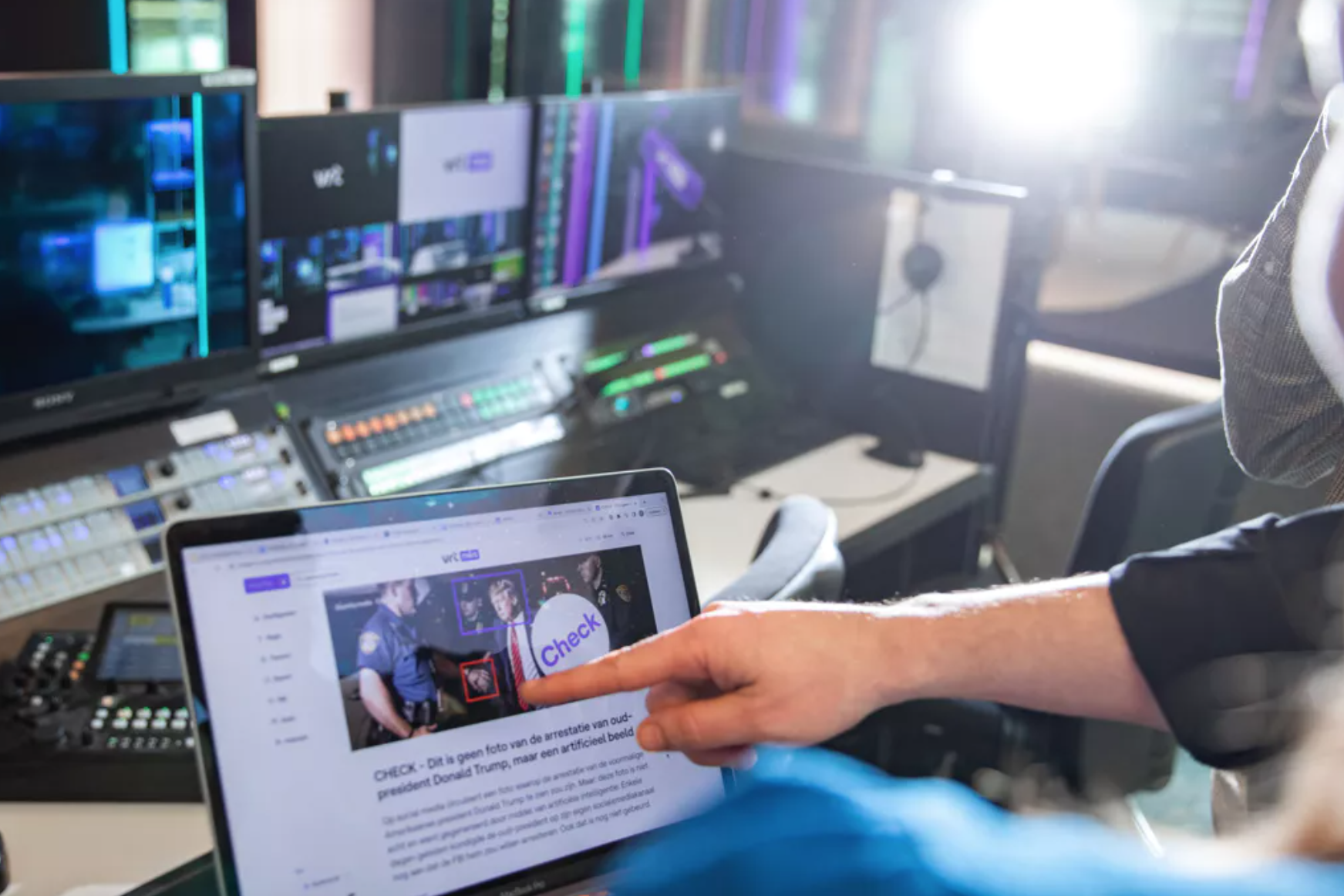INSIGHT
Fighting medical disinformation where it spreads: a cross-border collaboration
11 August 2025
VRT joined other public broadcasters, fact-checking organisations, and medical professionals, to lead a pioneering cross-border collaboration, fact-checking medical disinformation.

From BENEDMO
In spring 2025, media organisations and fact-checking partners in Belgium and the Netherlands launched a coordinated effort to tackle the growing threat of medical disinformation on social media. As part of the EU-funded BENEDMO-project (the Belgian-Dutch hub of the European Digital Media Observatory), the initiative focused on young audiences and their exposure to misleading health claims online.
This subject was chosen because amongst all the project partners, one common insight was the large amount of misleading information around health themes on social media – based on prior research. VRT had for example already investigated popular meat diets and found millions of posts.
Read more: VRT NEWS is launching a fact-checking marathon in the run up to elections
The campaign was grounded in collaboration: with journalists, medical experts, academics, and researchers. It produced fact checks across public platforms – from radio, television, podcasts to social media – ensuring that accurate, accessible health information reached audiences where they are most active.
A cross-border, cross-sector effort
The initiative was built on a collaboration between public broadcasters VRT and Pointer (data journalism platform of the Dutch public broadcaster, KRO-NCRV), fact-checking platform deCheckers, fact-checking organisations Knack, Factcheck.Vlaanderen (KU Leuven) and Nieuwscheckers (Leiden University), the investigative journalism network, Bellingcat, data intelligence company Textgain, as well as medical experts. It was informed by a survey of 126 Flemish general practitioners, which revealed that 60% regularly receive questions from young patients about health advice seen on platforms like TikTok and Instagram.
In parallel, data analysis firm and BENEDMO-partner Textgain monitored health-related content across social media, identifying trends in misinformation around supplements, contraception, mental health, and more. It uses advanced technologies, like the Factrank algorithm, which sifts through data to detect factually relevant statements for potential fact-checking, without verifying them itself, targeting the most widely shared and potentially misleading medical claims online. This evidence-based approach led to the creation of fact-checks in different formats: from in-depth TV reports and radio segments to podcasts, articles, and short-form videos tailored to TikTok and Instagram. The initiative also drew on the expertise of medical organisations to ensure accuracy and clarity.
Reaching audiences where they are


The initiative’s strength lay in its multimedia strategy. VRT NWS articles on medical disinformation attracted over 172,000 readers, while TikTok videos surpassed 120,000 views and Instagram content reached 275,000 views. A televised report on fitness influencers resonated with younger viewers, with 56% of the audience aged 25-44 and 10% under 25.
The initiative deliberately adapted its content to each platform: concise explainers for TikTok, visually engaging posts for Instagram, and in-depth reporting for television. A youth editorial team at VRT helped shape the tone and format, ensuring relatability and trust. One striking experiment showed how quickly harmful content can surface: within an hour of creating a new TikTok account, the test profile was shown pro-anorexia content – highlighting the urgency of making reliable information visible in the same spaces.
“As a fact-checker, you don’t just encounter outright disinformation, but also half-truths, misleading context, or commercial interests – such as the profit models behind supplement sales. That makes the work all the more challenging: you must thoroughly examine what’s accurate, what’s missing, and how the public might interpret it. By pooling expertise and sharing knowledge, we can respond more effectively and efficiently to disinformation on socially relevant topics that transcend national borders.”
– Luc van Bakel, Editor-in-Chief in investigative journalism, VRT

Latest Insights
Beyond the headlines: public media’s role
The initiative also sparked broader conversations. At a knowledge-sharing event co-hosted by BENEDMO and isdatechtzo.nl, media professionals, doctors, researchers, and policymakers discussed the societal impact of health misinformation. Speakers emphasised that disinformation doesn’t just mislead individuals, it undermines trust in healthcare, burdens medical professionals, and spreads across borders.
Panellists stressed that while disinformation spreads quickly and emotionally, reliable information takes time, care, and resources to communicate effectively. Influencers often outperform experts in reach and relatability, so public media must combine credibility with creativity to remain visible and persuasive. Additionally, platform algorithms tend to reward divisive or fear-based content, creating an inherent imbalance. Fact-checks rarely achieve the same reach or impact as the original disinformation they aim to correct.
This initiative demonstrates how public media can work with health professionals and researchers to respond swiftly and credibly to emerging threats. The goal is to foster collaborations that connect the media sector with academia across various topics. The more diverse the professional fields involved, from journalists, researchers to technical experts, the stronger the outcome. For example, a similar approach was used around the NATO summit in The Hague to help expose propaganda related to the summit and the war in Ukraine. This kind of cross-domain cooperation is central to modern journalism.
“By joining forces, we increase our impact and help people better understand what to believe when it comes to their health. With disinformation evolving rapidly, the BENEDMO initiative offers a replicable model: one that blends evidence, collaboration, and editorial expertise to serve the public good.”
– Wim Vanobberghen, project lead VRT at BENEDMO

Related Posts
3rd April 2025
How Western Balkans public media empowered youth to tell fake from fact
Western Balkans public media…
10th January 2025
Why Meta fact-checking cuts highlights vital role of public media
Cuts to Meta fact-checking in favour of…
21st August 2024
Fake or Fact: SRG and SBB launch new module on school train
The rolling classroom will drive…
3rd April 2024
VRT NWS is launching a fact-check marathon in the run-up to elections
With the approaching parliamentary and…






